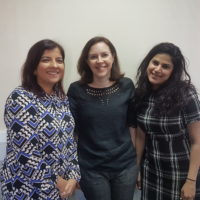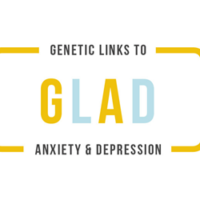Obsessive compulsive disorder (OCD)
-

Autism Spectrum Disorders and Obsessive Compulsive Disorder edition
This edition of ‘The Bridge’ focusses on Autism Spectrum Disorders and Obsessive Compulsive Disorder. Both of these can resemble each other with the over-focus, special interests and anxieties seen in ASD resembling the obsessions of OCD, and the routines, rituals and need for order and sameness that can be seen in ASD resembling the compulsions in OCD.
Read more -

Young people’s lived experience of Obsessive Compulsive Disorder
How do young people really experience living with Obsessive Compulsive Disorder (OCD)? What are young people’s understanding of their development of OCD and is there a link to trauma? How do other people’s reactions to the OCD affect the young people? How do young people really feel about the help for OCD in the United Kingdom?
Read more -

Working memory deficits may compromise cognitive flexibility in OCD
Obsessive compulsive disorder (OCD) is characterised by recurrent intrusive thoughts and/or behaviours. These traits imply deficits in cognitive flexibility in affected patients, but it is unclear at what stage of information processing these deficits might emerge. To address this question, Nicole Wolff and colleagues asked 25 adolescents with OCD and 25 matched healthy controls to complete a computer-based task switching paradigm.
Read more -

Cognitive flexibility in OCD: challenging the paradigm
Data from a new study by Nicole Wolff and colleagues suggest that cognitive flexibility can be better in children with obsessive-compulsive disorder (OCD) than typically developing controls.
Read more -

Cognitive flexibility in OCD: challenging the paradigm
Data from a new study by Nicole Wolff and colleagues suggest that cognitive flexibility can be better in children with obsessive-compulsive disorder (OCD) than typically developing controls.
Read more -

In Conversation… OCD
Dr Amita Jassi & Dr Gazal Jones talk to freelance journalist Jo Carlowe about Obsessive Compulsive Disorder (OCD)
Read more -

Exciting opportunity to engage in pioneering anxiety/depression research
Depression and anxiety (including OCD and other related disorders) are common but complex disorders whose research needs very large sample sizes. The Genetic Links to Anxiety and Depression (GLAD) study launched September 2018 and aims to recruit >40,000 individuals.
Read more -

Anxiety Edition – foreword by Dr Mark Lovell
This edition of The Bridge covers the topic of anxiety. Owing to anxiety being common, with all of us experiencing a state of anxiety at some time and many also having trait anxiety, it is no surprise that ACAMH’s two main academic outputs the Journal of Child Psychology and Psychiatry and Child and Adolescent Mental Health contain some good quality research on anxiety advancing our knowledge of the science and evidence based practice.
Read more -

Raising Awareness for Body Dysmorphic Disorder
BDD is not something that clinicians always think of, so what are the symptoms that we should be looking out for and what evidence-based treatments can help relieve the symptoms that people experience?
Read more -

OCD – Obsessive Compulsive Disorder
People with Obsessive Compulsive Disorder (OCD) experience unpleasant and intrusive thoughts, images, doubts or urges (called obsessions) and repetitive behaviours (called compulsions). Compulsions are usually carried out as a way of reducing the distress caused by obsessions. OCD takes many different forms and causes distress and interference to day-to-day life.
Read more